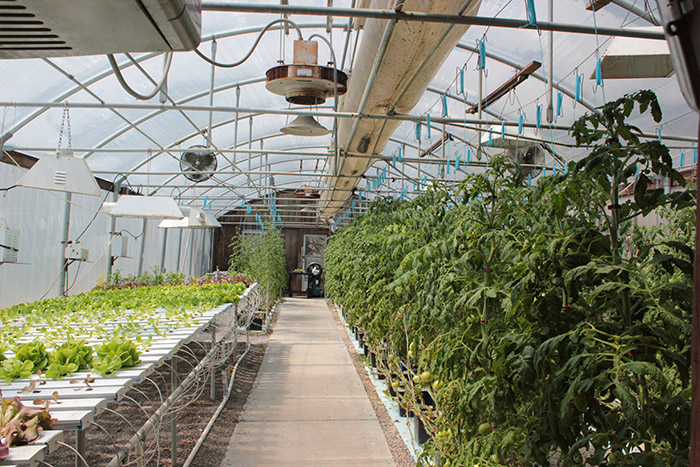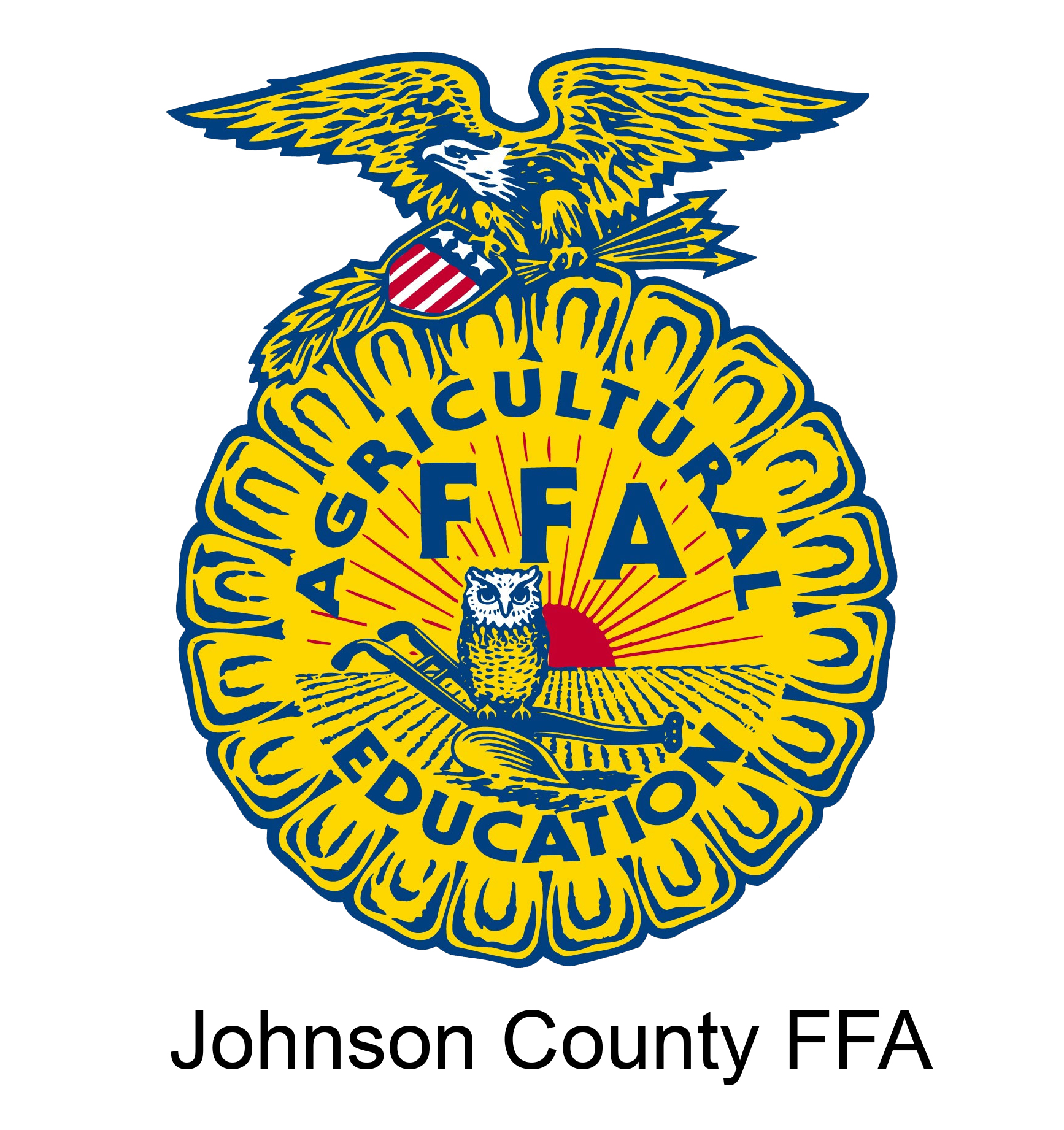Hydroponic food production is not just a fad. It is the way of the future. Hydroponic vegetable production is intensive agriculture that takes only one-tenth the space of traditional farming. Therefore, a 1 acre greenhouse equals 10 acres of conventional farmland. Even though hydroponic plants are grown in water, they only require one-tenth the water of traditional crops because the water is either recycled or injected precisely into each plant. Any plant or crop can be grown hydroponically; however, the top four commercial crops are tomatoes, lettuce, cucumbers, and peppers. Herbs are also emerging as a top hydroponic crop. Vegetables grown in this manner also have superior taste, quality, appearance, uniformity and extended shelf-life.
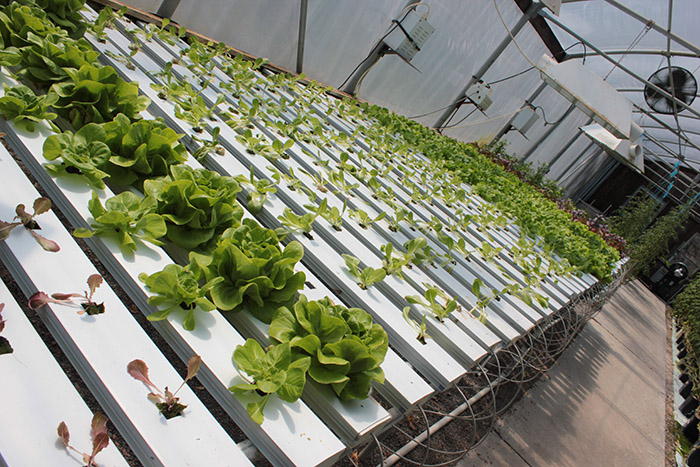
The hydroponic crops grown at Johnson County CTE are: tomatoes, lettuce, and cucumbers. Students harvest heads lettuce each week and 40-60 lbs. of tomatoes. All produce is sold to the school food service program, walk in customers, and to the local restaurants.
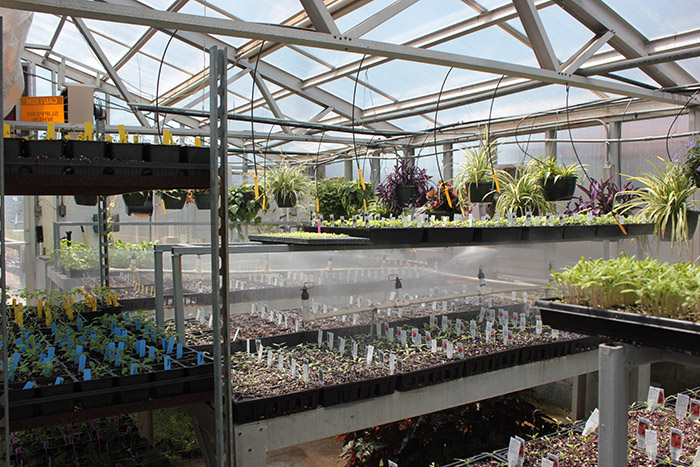
Lettuce crops are grown using a nutrient film technique (NFT) system. In this recycling system nutrient water is constantly pumped to the plants and then returned to the nutrient tanks by gravity. Tomato crops are grown using bag culture. In our system, we use both rockwool and perlite bags to show students two types of medium. In this system, 3-4 ounces of nutrient solution is injected into each plant once an hour during daylight hours only. We grow an indeterminate variety of tomatoes called Trust which was developed in Holland (the leading country in hydroponic food production with over 10,000 acres of hydroponic greenhouses).
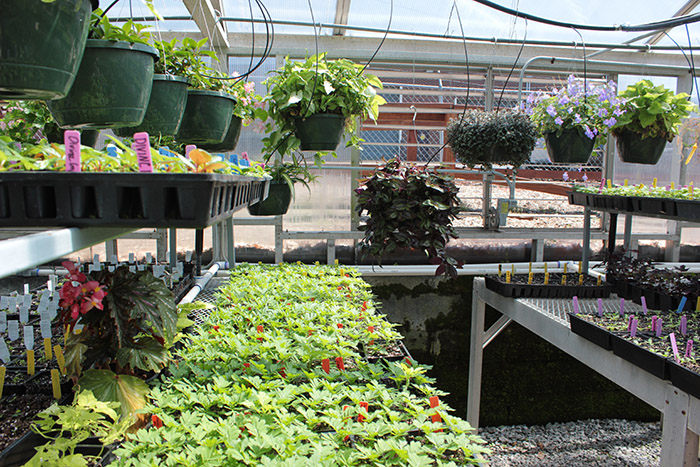
The greenhouse management program at Johnson County CTE also trains students how to grow bedding plants, hanging baskets, potted plants, mums, and poinsettias. Students propagate plants from seed or cuttings until the final product is sold in the bedding plant greenhouse. Plants are sold retail by the students and wholesale to local florists and garden centers. In the floriculture class, students learn everything from the history of floriculture to bow tying, corsage making, and all styles of floral designs.
